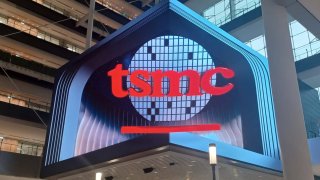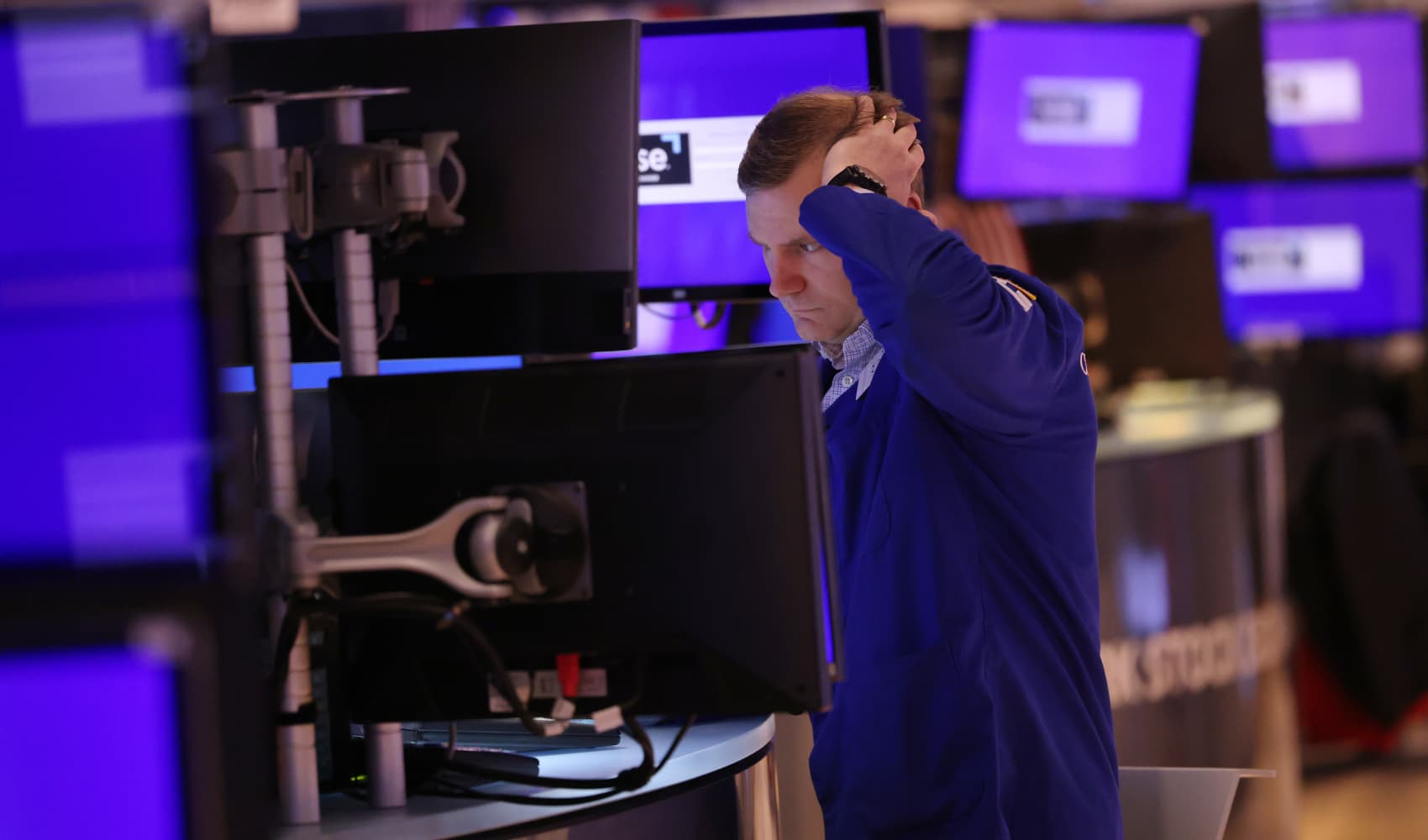
- TSMC beats revenue and profit expectations in the first quarter on strong AI chip demand.
- TSMC is the world's largest producer of advanced processors and counts companies such as Nvidia and Apple as its clients.
- A strong demand for AI chips is being led by the proliferation of large language models such as ChatGPT and Chinese clones.
Taiwan Semiconductor Manufacturing Company on Thursday beat revenue and profit expectations in the first quarter, thanks to continued strong demand for advanced chips, particularly those used in AI applications.
Here are TSMC's first-quarter results versus LSEG consensus estimates:
- Net revenue: 592.64 billion New Taiwan dollars ($18.87 billion), vs. NT$582.94 billion expected
- Net income: NT$225.49 billion, vs. NT$213.59 billion expected
Get Tri-state area news and weather forecasts to your inbox. Sign up for NBC New York newsletters.
TSMC reported net revenue rose 16.5% from a year ago to NT$592.64 billion, while net income increased 8.9% from a year ago to NT$225.49 billion. The firm guided first-quarter revenue to be between $18 billion and $18.8 billion.
TSMC is the world's largest producer of advanced processors and counts companies such as Nvidia and Apple as its clients.
"For the second quarter of 2024, we expect our business to be supported by strong demand for industry-leading 3-nanometer and 5-nanometer technologies, partially offset by a continued smartphone seasonality," CFO Wendell Huang said during the firm's earnings call Thursday.
Money Report
CEO C.C. Wei said TSMC expects 2024 to be a "healthy" growth year, supported by "our technology leadership and broader customer base."
"Almost all the AI innovators are working with TSMC to address an insatiable AI-related demand for energy efficient computing power," said Wei, adding that the firm estimates revenue contribution from server AI processors to "more than double this year."
TSMC expects second-quarter revenue to be between $19.6 billion and $20.4 billion.
TSMC currently produces 3-nanometer chips and plans to commence mass production of 2-nanometer chips in 2025. Typically, a smaller nanometer size yields more powerful and efficient chips.
Strong demand for AI chips led by the proliferation of large language models such as ChatGPT and Chinese clones has caused TSMC's shares to surge 56% in the past one year.
"TSMC is well-positioned for strong performance based on key industry trends. The continued demand for advanced chips, particularly those used in AI applications, is a positive sign for both the short and long term. The focus on advanced chip development, like the shift towards 3nm technology, is another factor driving long-term growth for TSMC," Brady Wang, associate director at Counterpoint Research, said on Monday ahead of the results.
TSMC accounted for 61% of global foundry revenue in the fourth quarter, according to Counterpoint Research data. Samsung Foundry came in second with 14% of the market.
"TSMC's net profit margin continues to be one of the highest in the company's history at 40%, against an industry average of 14%, demonstrating TSMC's strong competitive position. The high margin is the result of an increased share of sales of 7nm and smaller chips, which have significantly higher margins," Grzegorz Drozdz, market analyst at Conotoxia, said last week.
Last year, TSMC's business was impacted by macroeconomic headwinds and inventory adjustment. Smartphone and PC makers stockpiled chips during the pandemic, leading to surplus inventories as Covid-era demand waned.
Earlier this month, Taiwan was hit by an earthquake – its strongest one in 25 years. A TSMC spokesperson said its construction sites were normal upon initial inspection, though workers from some fabs were briefly evacuated. Those workers subsequently returned to their workplaces.
"There were no power shortages, no structural damage to our fabs and there is no damage to our critical tools, including all of our extreme ultraviolet lithography tools," CFO Huang told investors and analysts on Thursday.
EUV machines are critical in the production of the most advanced processors.
However, some wafers were affected and "had to be scrapped," said Huang, adding that the firm expects most of the lost production to be recovered in second quarter, with "minimal impact" to revenue.
"We have just guided our second quarter gross margin to decline by 1.1 percentage points to 52% at the midpoint, primarily due to impact from the earthquake on April 3, as just discussed, and higher electricity costs in Taiwan," said Huang.
The U.S. also recently granted TSMC's Arizona subsidiary preliminary approval for government funding worth up to $6.6 billion to build the world's most advanced semiconductors. TSMC is also eligible for about $5 billion in proposed loans.






